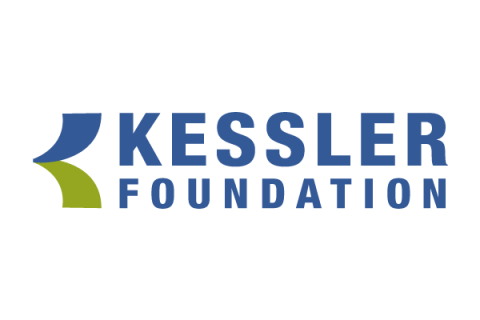Developed and conducted by the Center for Research on Disability at the University of New Hampshire, the Kessler Foundation National Employment and Disability Surveys are an ongoing research effort to generate actionable information to improve employment outcomes for people with disabilities.

The 2024 Kessler Foundation National Employment and Disability Survey: Hospitality Industry is a project led by Andrew Houtenville and Shreya Paul. Funded by the Kessler Foundation, the project has been awarded $250,000.
This project focuses on employment practices within the hospitality industry, particularly concerning people with disabilities. The study aims to closely examine hiring, training, accommodation, and retention practices for people with disabilities in the hospitality industry. The goals are to identify successful strategies for employing people with disabilities in the hospitality industry.
Explore the survey findings on the Kessler Foundation website

Kessler Foundation, in partnership with the University of New Hampshire (UNH), conducted the 2022 Kessler Foundation National Employment and Disability Survey: Supervisor Perspectives (2022 KFNEDS:SP2) to examine the impact of the COVID-19 pandemic on employment practices as they relate to people with disabilities, to identify the practices used by employers to increase the employment of people with disabilities, and to understand supervisors’ views about the effectiveness of these practices.
Building off the 2017 Kessler Foundation National Employment and Disability Survey: Supervisor Perspectives (2017 KFNEDS:SP) (Kessler Foundation and UNH, 2017), the 2022 KFNEDS:SP2 enables comparisons with supervisor perspectives today and pre-pandemic, capturing the impact of the national lockdown on employer practices and procedures to identify negative and/or positive changes since the original 2017 Supervisor Survey.
Explore the survey findings on the Kessler Foundation website

Nearly 30 years ago, the Americans with Disabilities Act (ADA) was passed to prevent discrimination against people with disabilities in education and employment. Individuals with disabilities now comprise about 12% of college students, which matters because educational attainment is associated with gainful employment. Although the employment gap between people with and without disabilities persists, employment prospects are favorable for people with disabilities who have college degrees. Yet, research is lacking about the ways college graduates with disabilities successfully navigate barriers – and, nearly 30 years after the ADA, emerging opportunities - to find work.
The 2020 Kessler Foundation National Employment and Disability Survey: Recent College Graduates (KFNEDS:RCG) addresses this gap in knowledge by researching several key questions. For example, what supports and services were most helpful to recent graduates, both at college and after graduation, during the job search? What kinds of jobs did they find? How did they decide whether or when to disclose their disabilities to employers? What were employers’ attitudes toward them?
Explore the survey findings on the Kessler Foundation website
Findings from this research will support the development of interventions and tools to improve employment outcomes and increase the degree to which college pays off for people with disabilities. Specifically, this work may be used to inform future interventions, policies, and practices on college campuses and in the employment sector to improve employment outcomes for graduates with disabilities. People with disabilities stand to learn from the recent experiences of graduates with disabilities who have entered the workforce. This research will also help college career counselors and vocational rehabilitation professionals act in ways that help to avoid barriers and facilitate successful transitions to work.

Many employers fully engage people with disabilities in their workforces--hiring, retaining, and advancing their employees with disabilities.
Developed and conducted by the University of New Hampshire, the 2017 Kessler Foundation National Employment and Disability Survey: Supervisor Perspectives (KFNEDS:SP) identifies ways that employers strive to hire and retain employees with disabilities by utilizing different approaches to successfully avoid or overcome barriers. Following the 2008 ODEP survey, the KFNEDS:SP uses a nationally representative sample of 3000 supervisors from a variety of sectors and industries across the US. Supervisors respond to questions related to (1) employer procedures and policies, (2) practice approaches to employ people with disabilities, and (3) the perceived effectiveness of practices and policies. Practices include be both pre-identified (according to those in the literature) and self-nominated. Responses are collected using multiple choice items, with probing questions about linchpin issues. In addition, open-ended questions ask respondents to self-nominate challenges and successes related to supervising people with disabilities.
Explore the survey findings on the Kessler Foundation website
The KFNEDS:SP is part of a larger, longstanding effort to generate actionable information about the employment of people with disabilities.

The employment gap between people with and without disabilities is well-documented. Research findings point to two main factors that contribute to the persistence of these employment disparities: First, social Security policy that “traps” large numbers of people with disabilities into income-support programs that do not foster and support full-time work; and second, persistent belief among employers that people with disabilities cannot do the job because of the “nature of the work.”
Consistent with the Kessler Foundation mission to improve the lives of people with disabilities, the Foundation National Employment and Disability Survey aims to reduce long-standing employment disparities between people with and without disabilities. The immediate objectives of the survey are to identify:
- Strategies that workers with disabilities and their employers are using and not using to obtain and maintain employment.
- Strategies that former-workers with disabilities and their employers used and did not use to obtain and maintain employment and the factors that contributed to their leaving work,
- Barriers faced by job-seekers with disabilities
- The factors among people with disabilities that have never worked nor sought work, that contribute to their situation and potential supports that would assist them in moving towards employment.
Explore the survey findings on the Kessler Foundation website
